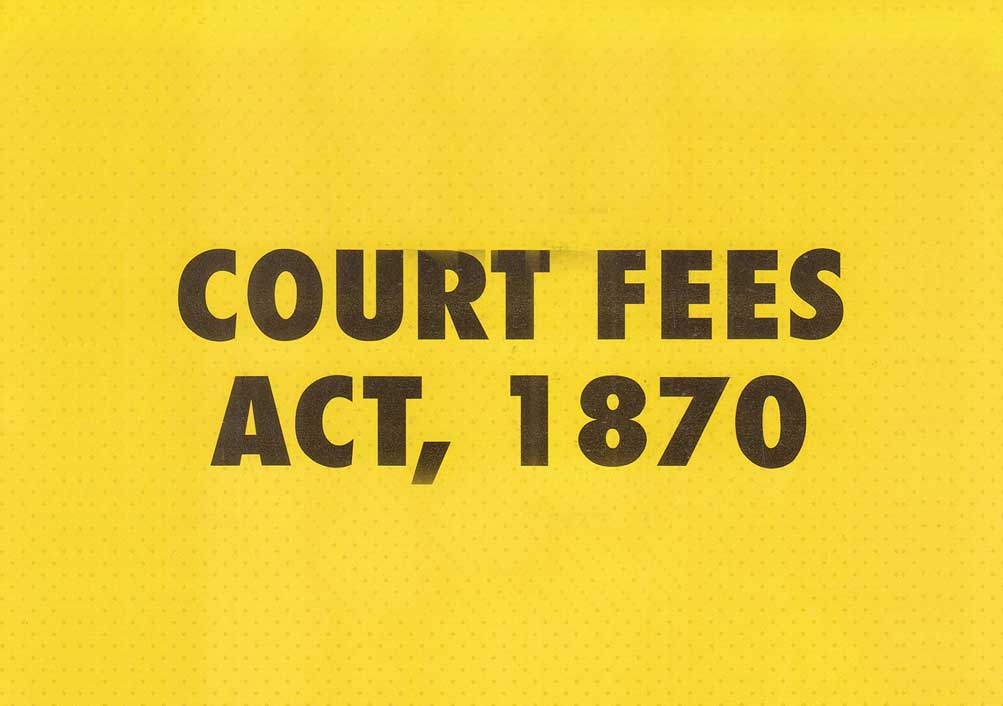In CR No.1459 of 2018-PUNJ HC- If person who is non-executant and in possession of suit property, sues for declaration that deed is null or void, then he would not have to affix ad-valorem court fee: P&H HC
Justice Alka Sarin [20-12-2022]

Read Order: Surinder Singh v. Amandeep Singh and Another
Monika Rahar
Chandigarh, December 21, 2022: While dealing with a revision petition challenging the order of the Trial Court directing the plaintiff-petitioner to affix court fee on the Collector rate of the suit property in response to the defendant’s application under Order VII Rule 11 of the Code of Civil Procedure, 1908 read with Section 151 CPC, the High Court of Punjab and Haryana has held that it is only a person, who is a non-executant and is in possession and sues for a declaration that the deed is null or void, who would not have to affix ad-valorem court fee and in case a person being a non-executant is not in possession, who seeks possession, in that case he would have to affix ad-valorem court fee.
The bench of Justice Alka Sarin also held, “It is well settled that while deciding an application under Order VII Rule 11 CPC only the contents of the plaint or the documents annexed therewith are to be seen.”
The brief facts are that the plaintiff-petitioner filed a suit against his sons for declaration to the effect that he was exclusive owner in possession of the suit property and that the sale deeds and the subsequent mutations were illegal and void ab-initio. A decree for mandatory injunction and permanent injunction against the defendant-respondents was also sought.
It was averred that the suit property was purchased by the plaintiff-petitioner in the names of the defendant-respondents from his own funds and no sale consideration was paid by them and that he was exclusive owner of the suit property.
The first defendant filed an application under Order VII Rule 11 CPC for rejection of the plaint on the ground that the plaintiff-petitioner failed to affix the ad-valorem court fee on the market value of the suit property or on the value of the suit property as mentioned in the sale deeds.
In reply, the plaintiff-petitioner stated that the entire sale consideration was paid by him and at the time of execution of the sale deeds the defendant-respondents were minors and in view of the relief claimed, the plaintiff-petitioner affixed proper court fee.
The petitioner’s counsel contended that the defendant-respondents were only trustees of the suit property for its having actually been purchased by the petitioner and that the petitioner had also disinherited the first respondent and revoked the licence to retain possession. It was also contended that the sale deeds never intended to actually transfer any right, title or interest in the suit property in favour of the defendant-respondents, hence, ad valorem court fee was not payable.
Per contra, the counsel for the defendant submitted that in the suit the plaintiff-petitioner also sought possession of the suit property though he cleverly worded the plaint by seeking a decree for mandatory injunction directing the defendant-respondents to handover vacant possession of the suit property to the plaintiff-petitioner.
While noting that the executant of the sale deeds was defendants’ father and the said deeds bore his signatures and were registered documents, the Bench observed that the argument of the petitioner’s Counsel to the effect that he was only seeking a decree of declaration, thus, ad-valorem court fee was not to be affixed, was wholly untenable in law. In this regard, the Court reiterated that where the executant of a deed wants it to be annulled, he has to seek cancellation of the deed and when a non-executant seeks annulment of a deed, he has to seek a declaration that it is invalid and non-est and once a person is an executant of the deed and seeks cancellation of the deed he is bound in law to pay ad-valorem court fee on the consideration stated in the sale deed.
In light of the above, the Bench held,
“It is only a person, who is a non-executant and is in possession and sues for a declaration that the deed is null or void, who would not have to affix ad-valorem court fee and in case a person being a non-executant is not in possession, who seeks possession, in that case he would have to affix ad-valorem court fee.”
The plaintiff-petitioner’s counsel also contended that as per Section 7(v) of the Court Fee Act, 1870, in case of agricultural land, the market value shall be ten times the land revenue of the land and in the instant case also the suit property is agricultural land, therefore, the Trial Court erred in directing affixing of court fee on the Collector rate of the suit property.
The bench opined that it is well settled that while deciding an application under Order VII Rule 11 CPC only the contents of the plaint or the documents annexed therewith are to be seen.
Regarding the above-mentioned argument, the Bench observed, while rejecting this argument, that though the Trial Court mentioned in the impugned order that the suit property was agricultural, the counsel was unable to point out from the record of the present civil revision petition that the suit property is agricultural.
The Bench held that there was no illegality or error of jurisdiction in the impugned order. Thus, while dismissing the present revision petition, the plaintiff-petitioner was granted six weeks time from the date of passing of this order to affix the ad-valorem court fee on the Collector rate of the suit property.
Sign up for our weekly newsletter to stay up to date on our product, events featured blog, special offer and all of the exciting things that take place here at Legitquest.




Add a Comment